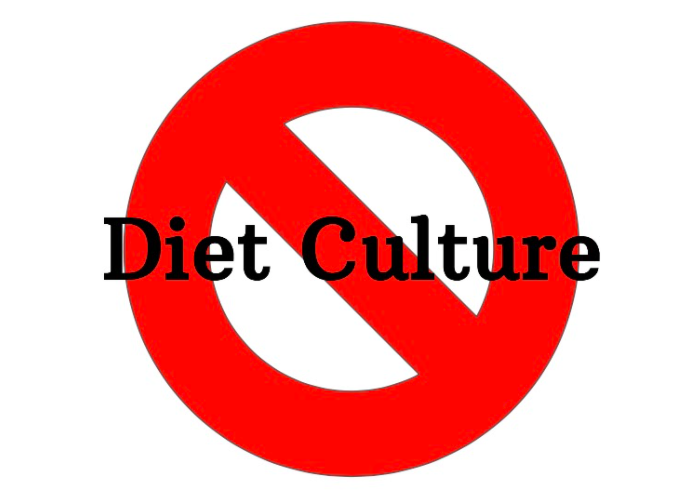Analysing Diet Trends: Why Am I Not Losing Weight?
Trigger Warning: Eating Disorders are briefly mentioned
March 8, 2021
Every New Year’s resolution you hear the phrase, ‘Maybe next Sunday’ way too often. Diet culture has become a huge trend in the last few decades, especially near the start of every new year. However, for the average individual it’s an endless cycle, this is due to the fact that most people are dieting wrong.
The first issue an individual may face when trying to lose weight is their mindset. In recent years, diet culture has started to be questioned and have a negative connotation. This may be due to the fact that some individuals don’t know and/or understand diet culture.
“Diet culture is a system of beliefs that worships thinness and equates it to health and moral virtue, which means you can spend your whole life thinking you’re irreparably broken just because you don’t look like the impossibly thin “ideal,” stated Christy Harrison, MPH, RD, CDN an outspoken leader in the non-diet, weight-inclusive movement.
Diet culture involves a negative mindset when trying to lose weight, this is also caused by social media and setting unrealistic body goals. Social media “influencers” admit to using various apps such as Facetune, VSCO, and many others on their pictures. Despite this, the individuals trying to lose weight still use the edited pictures as their inspiration pictures.
Senior Audrey Lane states, “Social media can be super negative on people. It definitely gives people an unhealthy relationship with their own bodies, making people want to diet and sometimes leading to eating disorders.”
Individuals lack many weight loss details about carbohydrates. Carbs have a very negative connotation in diets and most people try to remove them completely. Carbs are the body’s main source of energy and needed daily for the body to function.
Most individuals do not know that main sources of carbs consist of fruits, vegetables and legumes. Carbs are not just the starches and grains that most people try to remove from their diets completely.
According to the Dietary Guidelines for American 2010, for a 2000 calorie diet an individual should consume 225 to 325 grams of carbohydrates per day.
“When you are on a highly restrictive diet, that is something that can not be done long term which most of the time results in the diet failing,” stated Randy Colin, a culinary teacher at Foran high school.
The main source of weight loss stems from a calorie deficit. The definition of calorie deficit is any shortage in the amount of calories consumed relative to the amount of calories required for maintenance of current body weight. This can be achieved by working out or setting a lower calorie intake.
However, a main misconception which can have negative effects is having a calorie intake that is too low. The National Eating Disorders Association stated, “35% of dieting becomes obsessive, and 20 to 25% of those diets turn into eating disorders. Considering how often messages about dieting and thinness are shown on social media, it would make sense that younger people who use social media more are at greater risk of developing an eating disorder.”
Eating disorders can lead to body defects such as kidney failure, stomach issues, and many other life threatening health concerns. Therefore, when dieting the human body needs a certain amount of calories per day, this is different for every individual.
A recent trend that is beneficial for weight loss is intuitive eating. Intuitive eating was founded in 1995 by two dietitians, Evelyn Tribole and Elyse Resch.
Tribole stated, “Intuitive Eating is a personal process of honoring health by listening and responding to the direct messages of the body in order to meet your physical and psychological needs.”
Intuitive eating eliminates the negative association of specific food and the negative mindset that comes with dieting. There is no such thing as ‘failing’, ‘cutting’ certain food groups, or not enjoying your favorite foods.
When trying to lose weight many individuals pick either dieting or working out. However, the most weight is lost when both options are involved. To lose weight by working out most people assume that running is the best cardio option and only way to lose weight, however, there are many options that are designed to fit everyone’s schedule and comfort levels. From weighting lifting, yoga, cycling, swimming working out can be done in many different ways.
Navigation through diet culture can be difficult. Proper nutrition and exercise is the key to properly become in tune with your body.









